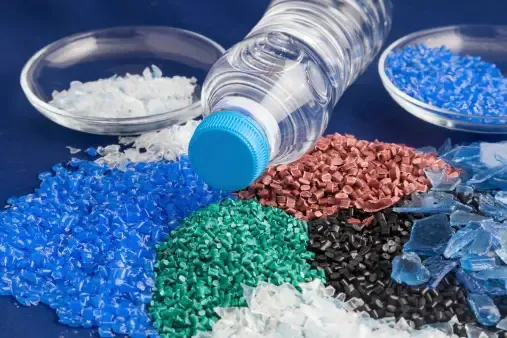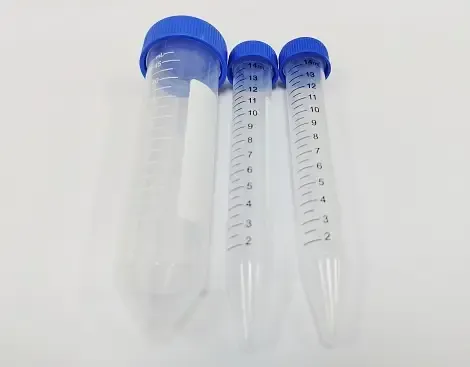Unlock your product's potential with our One-stop solutions!
+86-755-83222882

GET QUOTE
What Is Polypropylene Injection Molding?
In today's manufacturing landscape, polypropylene plays a pivotal role due to its remarkable properties and versatility. From its lightweight nature to its resistance against various chemicals, polypropylene plastic has become a go-to material for a wide range of industries. Join us as we delve deeper into the world of polypropylene injection molding and uncover its endless possibilities.
Understanding Polypropylene
Definition and Properties
Polypropylene (PP) stands as a cornerstone in plastic manufacturing, prized for its versatility and durability. This thermoplastic polymer holds the capability to withstand various chemical substances, making it an ideal choice for a multitude of applications. In essence, PP embodies lightweight yet robust characteristics, allowing for seamless integration across diverse industries.
Types of Polypropylene
When delving into the realm of polypropylene, it's crucial to discern between its two primary variants: homopolymer and copolymer.
Homopolymer Polypropylene is derived solely from propylene monomers, boasting high flexural strength and fatigue resistance. This composition renders it suitable for an array of consumer products, where reliability and endurance are paramount.
On the other hand, Copolymer Polypropylene results from a blend of propylene with other monomers, yielding enhanced flexibility and resistance to external factors. This variant finds its niche in applications where the homopolymer may exhibit limitations, providing a versatile solution for varied manufacturing needs.
The Basics of Injection Molding
Overview of Injection Molding Process
In the realm of manufacturing, injection molding stands as a cornerstone process, facilitating the production of intricate plastic components with precision and efficiency. This method involves a series of steps, including melting plastic material, injecting it into molds under high pressure, holding pressure during cooling, and finally ejecting the solidified part. It's a highly versatile technique that caters to a wide range of industries, from automotive to medical.
Advantages of Injection Molding with Polypropylene
Polypropylene injection molding offers a myriad of advantages that make it a preferred choice for manufacturers worldwide. One notable advantage is its cost-effectiveness, allowing for the production of high-quality parts at a lower cost compared to alternative materials. Additionally, PP injection molding boasts remarkable efficiency and speed, enabling rapid production cycles without compromising on quality. These factors collectively contribute to its widespread adoption across various industries.
Polypropylene Injection Molding Design Guidelines
Wall Thickness Considerations
Maintaining uniform wall thickness is paramount in polypropylene injection molding to ensure consistent quality and structural integrity of the final product. Designing with a recommended wall thickness range for polypropylene helps mitigate issues such as warping and shrinkage, resulting in optimal moldability and performance.
Radii and Draft Angle Recommendations
Understanding the importance of radii and draft angles is essential in PP injection molding design. Incorporating appropriate values for radii and draft angles helps minimize stress concentrations and facilitates smooth ejection of molded parts from the mold. By adhering to recommended design practices, manufacturers can achieve superior quality and functionality in their polypropylene products.
Gating System Optimization
The gating system plays a crucial role in the success of polypropylene injection molding projects. By optimizing the gating system, manufacturers can ensure efficient material flow, minimal waste, and consistent part quality. Various types of gates are available for PP injection molding, each offering unique advantages depending on the specific requirements of the project. Careful consideration of gate type and placement is essential to maximize the efficiency and effectiveness of the injection molding process.
Real-world Applications of Polypropylene Injection Molding
Automotive Industry
Polypropylene injection molding plays a pivotal role in the automotive industry, providing solutions for various parts and components. From interior trim panels to exterior bumper covers, PP offers a winning combination of durability and lightweight construction. Its innate resistance to wear and tear makes it an ideal choice for withstanding the rigors of daily use on the road.
Medical and Food Industries
In the medical and food industries, the versatility of polypropylene shines through in the form of medical devices and food containers. PP's chemical resistance and ease of sterilization make it a preferred material for manufacturing products that require strict hygiene standards. Whether it's syringes or storage containers, polypropylene injection molding ensures the safety and reliability of crucial equipment and packaging.
Conclusion
Polypropylene injection molding stands as a cornerstone in modern manufacturing, offering unparalleled versatility and reliability. Its ability to combine strength, durability, and chemical resistance makes it a preferred choice for a wide range of products, from automotive components to medical devices and food containers. By harnessing the power of polypropylene injection molding, businesses can unlock endless possibilities and achieve remarkable results.
Ready to embark on your next injection molding project? Look no further than SZOMK. With our expertise and state-of-the-art facilities, we're equipped to handle all your polypropylene injection molding needs. Whether you're seeking custom solutions for automotive, medical, or consumer products, we're here to bring your vision to life. Contact us today to explore our injection molding services and take the first step towards manufacturing excellence.
You may also interested:


